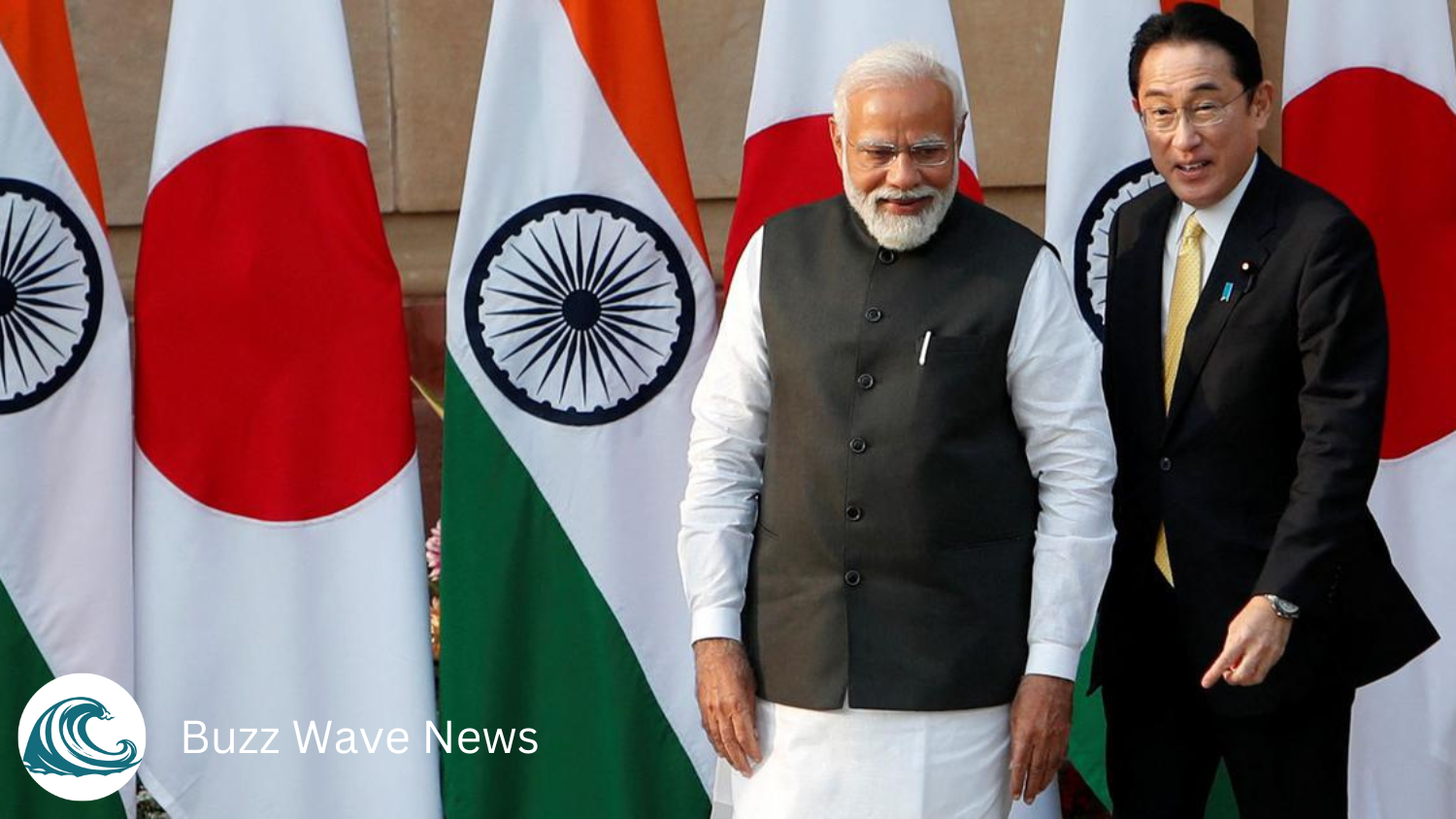In the dynamic landscape of international relations, the meeting between India’s External Affairs Minister S. Jaishankar and Japan’s Foreign Minister Yoko Kamikawa marks a significant moment in strengthening bilateral cooperation between India and Japan.
This meeting, which took place following the Quad Foreign Ministers Meeting in Tokyo, emphasized the importance of collaboration at a time when the world is experiencing substantial geopolitical shifts.
Historic Turning Point: Strengthening Ties
Japan has underscored the importance of its relationship with India, calling it an “important partner” during this “historic turning point.” This sentiment reflects the broader context of global realignments and the necessity for nations to forge strong partnerships to address emerging challenges. Japanese Foreign Minister Yoko Kamikawa emphasized the need for deeper cooperation and co-creation of solutions through dialogue and collaboration. This approach aligns with Japan’s broader strategy of working closely with like-minded countries to maintain stability and promote shared values in the international arena.
A Decade of Special Strategic and Global Partnership
The meeting between Jaishankar and Kamikawa is particularly noteworthy as it coincides with the 10th anniversary of the India-Japan Special Strategic and Global Partnership. Over the past decade, this partnership has evolved to encompass a wide range of areas including economic collaboration, security cooperation, and people-to-people exchanges. Minister Jaishankar highlighted India’s aspirations to further deepen cooperation in these areas, reflecting the robust foundation of trust and mutual respect that has been built over the years.
Economic and Security Cooperation
Economic collaboration remains a cornerstone of the India-Japan partnership. Both ministers acknowledged the steady progress of the high-speed rail project, a flagship initiative symbolizing the tangible benefits of their bilateral cooperation. This project not only signifies technological and infrastructural advancement but also represents the commitment of both nations to modernize and improve connectivity. Additionally, the expansion of recruitment for Indian nationals under the JET Programme and the dispatch of Japanese Language Partners to India illustrate the commitment to fostering closer people-to-people ties and cultural exchange.
Security cooperation is another critical pillar of the India-Japan relationship. As both nations navigate a complex security environment, their collaboration becomes increasingly vital. The shared view to strengthen bilateral cooperation includes addressing common security concerns and ensuring stability in the Indo-Pacific region. This cooperation is further enhanced by their joint efforts in advocating for Security Council reform, reflecting their commitment to a more representative and equitable international order.
The Quad: A Platform for Regional Stability
The Quad Foreign Ministers Meeting in Tokyo, which preceded the bilateral discussion between Jaishankar and Kamikawa, underscores the strategic importance of the Quadrilateral Security Dialogue (Quad) comprising India, Japan, Australia, and the United States. The Quad serves as a critical platform for discussing and addressing regional security challenges, promoting a free and open Indo-Pacific, and ensuring that international rules and norms are respected.
During the Quad meeting, Japanese Prime Minister Fumio Kishida highlighted the progress made in various areas of cooperation among the Quad members. This 20-minute meeting, which included Australian Foreign Minister Penny Wong and US Secretary of State Antony Blinken, reaffirmed the shared commitment to enhance cooperation in critical areas such as maritime security, infrastructure development, and supply chain resilience. The collaborative spirit of the Quad reflects the alignment of strategic interests and the collective resolve to address regional and global challenges.
Future Summit and Beyond
Looking ahead, the cooperation between India and Japan is poised to reach new heights with the Future Summit scheduled for September. This summit will provide an opportunity for both nations to outline their strategic priorities and explore new avenues for collaboration. The discussions will likely focus on enhancing economic partnerships, advancing technological innovation, and strengthening security cooperation. As both nations continue to navigate the complexities of the global landscape, their partnership will play a crucial role in shaping the future of the Indo-Pacific region and beyond.
Cultural and Educational Exchange
The emphasis on cultural and educational exchanges between India and Japan highlights the holistic nature of their partnership. The expansion of the JET Programme and the introduction of Japanese Language Partners to India are significant steps in fostering mutual understanding and appreciation of each other’s cultures. These initiatives not only enhance language skills and cultural knowledge but also create lasting personal and professional connections that contribute to the broader bilateral relationship.
The JET Programme, which brings Indian nationals to Japan for teaching and cultural exchange roles, provides valuable opportunities for participants to immerse themselves in Japanese society and share their experiences with their home country upon their return. Similarly, the Japanese Language Partners initiative aims to enhance the proficiency of the Japanese language among Indian students and professionals, thereby facilitating better communication and collaboration between the two nations.
Economic Collaboration: Beyond Infrastructure
While the high-speed rail project is a flagship initiative, economic collaboration between India and Japan extends far beyond infrastructure. Both nations are exploring opportunities in various sectors, including technology, digital innovation, healthcare, and renewable energy. Japan’s expertise in advanced technology and India’s growing market potential create a synergistic environment for joint ventures and investments.
In the field of digital innovation, both countries are keen to explore partnerships in areas such as artificial intelligence, cybersecurity, and fintech. These collaborations can drive technological advancements, enhance digital infrastructure, and create new economic opportunities. In healthcare, Japan’s experience in medical technology and healthcare management can complement India’s efforts to improve healthcare accessibility and quality for its population.
Renewable energy is another critical area where India and Japan can collaborate to address global environmental challenges. Both nations are committed to sustainable development and reducing their carbon footprints. By leveraging Japan’s expertise in renewable energy technologies and India’s vast renewable energy potential, they can work together to promote clean energy solutions and contribute to global efforts to combat climate change.
Security Cooperation: Ensuring Regional Stability
Security cooperation between India and Japan is crucial for ensuring regional stability in the Indo-Pacific. Both nations share common concerns regarding maritime security, freedom of navigation, and respect for international law. Their collaboration in these areas reflects a commitment to maintaining a rules-based order and countering any unilateral actions that could disrupt regional stability.
Joint naval exercises, information sharing, and capacity-building initiatives are key components of their security cooperation. These activities enhance the interoperability of their armed forces, improve their ability to respond to regional security challenges, and contribute to the overall security architecture of the Indo-Pacific. Additionally, their joint efforts in advocating for Security Council reform highlight their commitment to a more inclusive and representative international system that addresses the needs and concerns of all member states.
Conclusion: A Partnership for the Future
The meeting between External Affairs Minister S. Jaishankar and Japanese Foreign Minister Yoko Kamikawa underscores the strategic importance of the India-Japan partnership. As both nations navigate a historic turning point in global affairs, their commitment to strengthening bilateral cooperation is more critical than ever. The 10th anniversary of the India-Japan Special Strategic and Global Partnership serves as a reminder of the robust foundation of trust and mutual respect that underpins their relationship.
Economic collaboration, security cooperation, cultural and educational exchanges, and joint efforts in advocating for international reform are key pillars of their partnership. The progress made in these areas reflects their shared vision for a stable, prosperous, and inclusive Indo-Pacific region.
As India and Japan look to the future, their partnership will continue to play a pivotal role in shaping the regional and global landscape. The forthcoming Future Summit will provide an opportunity to further deepen their cooperation and explore new avenues for collaboration. In a rapidly changing world, the India-Japan partnership stands as a testament to the power of collaboration, mutual respect, and a shared commitment to addressing common challenges and seizing new opportunities.
By working together, India and Japan can co-create innovative solutions, promote regional stability, and contribute to a more just and equitable international order. Their partnership is not only a strategic necessity but also a beacon of hope and inspiration for the world.















